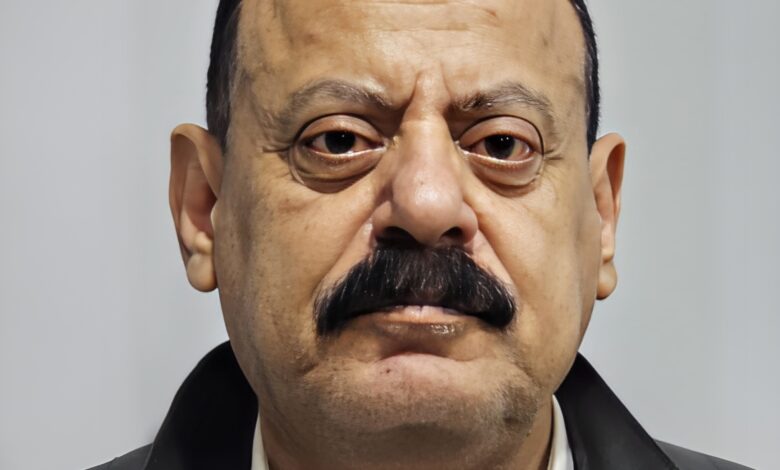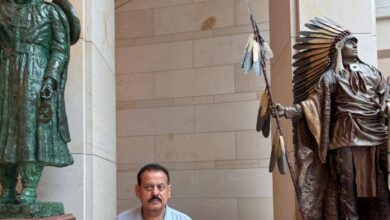The Authority of the Community in Governance

Yemeni mp
Ahmed Saif Hashed
The political authority and its affiliated religious group, deeply entrenched in the past, show a bias towards a closed society that is rigid in its customs, traditions, and culture.
They take pride in this insularity, actively imposing and entrenching it under the banners of shame and honor, claiming to preserve the society’s customs and traditions.
This authority views any society that resists its assimilation as “barbaric,” needing to be subdued either through consent, gradual indoctrination, or even coercion. Their interpretation of Islam, which they believe holds absolute truth—especially regarding ethical issues—positions them as guardians of a community they regard with fervent jealousy and unwavering rigidity.
The community authority diverts resources that should be allocated to development, education, health, and improving citizens’ livelihoods for its own benefit, reshaping societal consciousness to align with its ideology.
Their relentless effort to institutionalize the customs and traditions they uphold serves their agenda in confronting the future.
In this pursuit, they muster all possible support to glorify the past, striving to impose outdated and regressive ideologies on the present and future of our people through authoritarian means.
During its rule, the religious community authority exists in a state of contradiction and dissonance, failing to reconcile with itself.
It is rigid in its morals, imposing its complexes on society while fixating on trivial details, neglecting urgent economic issues. When it does address these matters, it often ends in failure.
The religious community authority evades confronting significant economic challenges, retreating into familiar moral and ethical issues, which only adds to existing dilemmas and multiplies its failures.
This authority leaves major economic issues—such as development, improving living standards, and advancing education and health services—to the populace, while becoming mired in trivial matters it sees as its primary mission.
It represses women who do not wear the hijab, enforces strictness against those who wear waist belts, and attacks hair salon advertisements, viewing them as moral decay.
Thus, the authority devolves from a governing body, meant to manage major societal issues, into a strict moral police force focused on minor details driven by its rigid ideology.
The religious community authority expends significant effort undermining women’s rights and freedoms, perpetuating violations against them to the extent that it dehumanizes their dignity.
It engages in fierce battles over issues like gender mixing, fashion, youth clothing, and hairstyles, adding vague concepts like “soft war” to include anything it deems worth suppressing and criminalizing.
In stark contrast, this authority blatantly neglects its responsibilities toward its citizens in more critical areas, such as improving living standards.
It shirks its duty to pay employee salaries, ensure healthcare for its citizens, and fulfill obligations regarding essential services and rights, including education, which it has largely corrupted.
Moreover, it transforms service ministries into sources of revenue and taxation for its own profit and that of its ruling group, exercising control over its people.
Modesty upheld by the religious authority is not the product of a refined and solid consciousness; instead, it appears as rigid formalities.
This includes heavy, blind black veils, various social constraints, repression and oppression, the rehashing of intellectual waste, outdated notions, and incitement against its opponents through mockery, excommunication, and treachery.
Such activities are disseminated via mosques and state-supported media, as well as through the publication of books, sensationalist pamphlets, and other burdens placed upon women. These practices exacerbate the struggles of those defending women’s rights and those who advocate for the issues facing the people and society.
The “authority” often finds itself becoming a morality police, ostensibly protecting “virtue” and imposing its guardianship over society in the name of the sacred, instead of serving its people. Simultaneously, it deliberately ignores the need to improve the economic, social, cultural, and scientific conditions of its constituents.
Furthermore, this authority does not stop here; it intensifies its policies to impoverish its citizens by imposing increasingly burdensome taxes, relentlessly seeking to monopolize wealth, hoarding money, and centralizing control over it.
It strives to stifle any potential sources of income for those outside its fold, cutting civil servants’ salaries in a manner that exacerbates poverty.
This creates conditions that push women into vice and widespread moral corruption, as they are compelled by poverty and desperation to seek the bare minimum for survival through sex work, ultimately falling victim to the sex trade.
* * *






